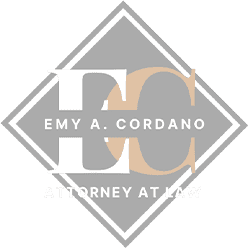Whew, your divorce proceedings are finally over, child custody and child support have been determined by Utah family court, and it seems as if you can put it all behind you and carry on with your life… But wait, there are more headaches to come. Taxes!
Did you forget about taxes, and how your divorce/child custody might affect your taxes? Well, do know that divorce does affect your taxes in Salt Lake City and elsewhere in Utah, so you may want to speak to a Salt Lake City child custody attorney to find out how to manage your taxes with child custody.
Who gets to claim the child as a dependent in taxes?
Many divorcing couples tend to believe that their tax forms will include the type of child custody they were awarded after a divorce. That is not entirely true. Whether you have joint or sole custody, legal or physical custody, are the custodial or non-custodial parent, none of these legal terms will be included on tax forms.
The only child custody that is going to affect your taxes is physical custody, as you are eligible to claim your child or children as your dependent(s). As you may or may not know, physical custody is determined on a night-by-night basis in Salt Lake City and all across Utah.
But what does it mean for you? It means that if you have physical custody for more than half of the year (more than 183 days), you can claim the child as a dependent. Among other things, you can also claim childcare expenses and earned income tax credit. Also, custodial parents can claim the head of the household status if eligible.
Note: if the child lived with each parent for an equal number of nights during the year, the parent with the higher adjusted gross income is considered the custodial parent.
What about the non-custodial parent?
This is where it gets tricky, our Salt Lake City child custody lawyer Emy A. Cordano says. If you are the non-custodial parent, you may face a plethora of legal challenges when it comes to claiming a child tax exemption for your dependents.
If you are the non-custodial parent, you may qualify to claim an exemption for your child but only as long as the other parent – the custodial parent – agrees. Under federal and Utah state laws, the non-custodial parent can obtain the child tax exemption through (a) the custodial parent voluntarily signing a copy of IRS Form 8332, which transfers the exemptions to the other parent, or (b) the decree that orders the custodial parent to sign the form.
Usually, however, whether to transfer or not to transfer the child tax exemption to the non-custodial parent is a matter of the custodial parent’s discretion. That is why it is crucial to be represented by a Salt Lake City child custody attorney from the Emy A Cordano, Attorney At Law in order to ensure that, if you end up being the non-custodial parent, the family court orders the custodial parent to sign Form 8332.
Do note, however, if the child tax exemption is transferred, the custodial parent still has the legal right to claim the head of the household status, the Earned Income Credit, and the childcare credit.
Alimony and taxes in Utah
But what about alimony? If you were obliged to provide your former spouse with alimony, also known as spousal support, you are allowed to claim alimony payments as deductions on federal tax forms. If you are the spouse who is receiving alimony payments, who are required to claim those payments as income on federal tax forms.
If this all sounds too confusing, speak to our best child custody attorneys in Utah to get a legal consultation now. Call our offices at (801) 901-8159 or complete this contact form.

